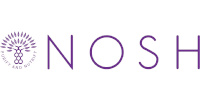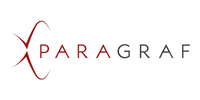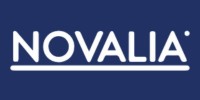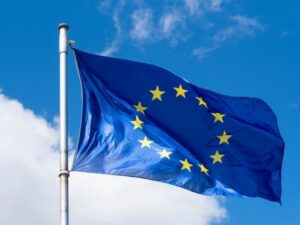Business Legal Services
Intellectual Property
Protect, exploit and defend your intellectual property with holistic legal advice tailored to your business goals.
We’ll help you identify the best way to protect and exploit your IP portfolio and shape the most profitable IP strategy for your business. Whatever stage you’re at – we’ll help commercialise your intellectual property so that you take full advantage of your most valuable business assets.
Intellectual property experts
Our team can assist you across all areas of intellectual property law, including:
Benefits
What are the benefits of actively managing your intellectual property portfolio?
Know your portfolio
to refine your strategy and maximise your benefits
Understanding what IP you have in your portfolio will help you take the right steps to protect your IP assets and ensure that you unlock your portfolio’s potential to maximise your profits.
Create new revenue streams
Licensing your IP to other organisations is a great way to generate additional revenue.
Protect your IP
Using state of the art technology, we actively monitor third-party trade mark applications to prevent them from registering trade marks which are similar (or worse, identical) to yours.
Utilise third party IP
Identifying where you could tap into existing third-party IP will help you reduce the amount of time and money spent on research and development and get you to market quicker.
Ensure your house is in order
Registration of IP rights is one of the most effective ways of protecting your IP. We can advise you on what rights you can register and support you in completing and maintaining your registrations.
Manage disputes effectively and efficiently
Efficient and effective management of IP disputes will help save stress, time and money. We explore all available options to secure the best outcome possible for you.
Improve your ability to move into other markets
Taking advantage of licensing arrangements with third parties will give you the opportunity to break into territories and markets that would otherwise be challenging to get into.
Clear concise IP agreements
will protect your IP and investments
Ensuring you have clear, concise and robust IP agreements in place will protect your IP, reduce your risk and ensure that you have the rights you need to use third-party IP in the way you envisage.
Who we help
Intellectual Property advice for small businesses, SMEs, start-ups, spin-outs and large companies
Every single business utilises IP in some way and our IP lawyers support a broad range of UK-based clients in innovative businesses where the effective protection and utilisation of IP is crucial. We’ve worked with clients in creative industries, e-commerce, retail and luxury brands, life sciences and healthcare, manufacturing and engineering, IT, telecommunications, and emerging technologies.
We advise clients of all shapes and sizes, from university spinouts and start-ups to SMEs and large multi-nationals. Whether you’re ready to start-up, scale up or exit, and whatever the nature of your business, we’re confident we can support you.
Intellectual Property Solicitors
Support with every aspect of your business’s intellectual property
Our IP solicitors support your business every step of the way, from audits, drafting paper work, creating a strategy to achieve your business goals to managing your intellectual property portfolio, responding to challenges, and even offering training to support success.
Our IP solicitors can offer you tailored and comprehensive support with:
IP audits
A comprehensive IP audit will help you understand what IP you own, what steps you need to take to protect it and how you can commercially exploit it, unlocking value in your business.
IP strategy
Our IP solicitors take a holistic approach to help you identify a strategy that ties in with your broader business goals, capitalises on your existing IP, assists you in meeting your commercial objectives, and supports expansion in the UK and further afield.
IP dispute resolution
Our expert negotiators will guide you through your IP dispute, using methods of alternative dispute resolution where appropriate to help manage your costs. When litigation is necessary, we make full use of the Intellectual Property Enterprise Court (IPEC) and its cost-effective and streamlined procedure to get you the best possible outcome.
IP licensing
Licensing in or out, nationally and across borders, supports new routes to market and revenue generation. Licensing in enables you to make the most of third-party innovations, reduces your risk when expanding into new territories, and saves you time and money. Our IP solicitors can also assist with intra-group licensing and other sub-licensing arrangements, including in the context of franchising.
IP clauses
We can advise and draft clauses in contracts on how employees and 3rd parties can use your IP and make it clear who owns your IP. This can include clauses in contracts of employment, commercial contracts and agreements, and corporate documents
IP agreements
Our IP solicitors are skilled in drafting a wide range of clear and concise IP agreements, from simple NDAs to complex R&D agreements. Having well-drafted agreements in place helps protect your interests, provides certainty and reduces risk.
IP registrations
We will identify which aspects of your IP may be registered and support you with making registration applications, including patents, trade marks, designs and utility models. We can also help you maintain your registrations by monitoring the status of your registrations and submitting timely renewals.
Unregistered IP rights
Our IP solicitors will help you identify and understand what unregistered IP rights you may have, including copyright and unregistered design rights, and how to protect and defend these rights.
Finding the right legal partner
Why work with Harper James
Choose a legal partner you can trust: we’ll help protect your goals, your business and your people so you can move forward with confidence and focus on growing your business.

Affordable, transparent and predictable pricing
Clear itemised invoices, subscription plans with up to 50% discount, and fixed fee products help you plan and manage legal spend – with no nasty surprises.

Proven track record and measurable results
We’ve supported over 6,500 businesses since 2014, with an ‘Excellent’ rating on Trustpilot and a Net Promoter Score (NPS) of 60+ from monthly client surveys.

Straight-talking, responsive advice
We’re here to make things easier, not add complexity. That means fast response times, practical expert legal advice delivered in plain English, and dedicated client service and account management support.

Risk and compliance assured
We’re an SRA regulated firm, but more importantly, we build quality, data, and compliance best practice into everything we do.
Appointing a legal partner is a big decision. That’s why we’re open about our values, culture and model, so you can see what makes us tick. And because a productive partnership starts with understanding, we always begin with a conversation – listening to your goals, pressures and plans, then tailoring our support to fit.
Our Intellectual Property Experts
Why choose our Intellectual Property solicitors?
We’ve guided numerous companies from start-up and scale-up through to exit, helping them create value through their innovations. Our understanding of the investment and the venture capital sector is also second-to-none. We make sure you get the best IP protection and management that fits with your long-term strategic objectives.
As High Court litigators for top 50 private practices, our lawyers have in-depth experience taking patent and trade mark cases through to the High Court and the Court of Appeal.
We’ll gladly work alongside your in-house counsel and current intellectual property solicitors or adopt a full-service approach if you prefer.
Pricing and service plans
Legal support designed
to fit your business needs
Our three transparent service plans are designed to give you the widest possible access to high-quality legal advice, whatever the size and nature of your business:
Engage
Flexible access to senior solicitors at highly competitive rates
An alternative to our subscription plans, offering access to full service legal expertise on a project-by-project basis.
Enable
Purpose built legal support for start-ups and smaller businesses
Monthly subscription plan for £219 per month, with £149 monthly credit and access to all legal services at 50% discount on our Standard Rates.
Extend
Comprehensive legal partnership for established businesses
Fully account managed and scalable annual subscription plan with support from a curated team of partners and senior solicitors, with up to 36% discount on our Standard Rates.




































